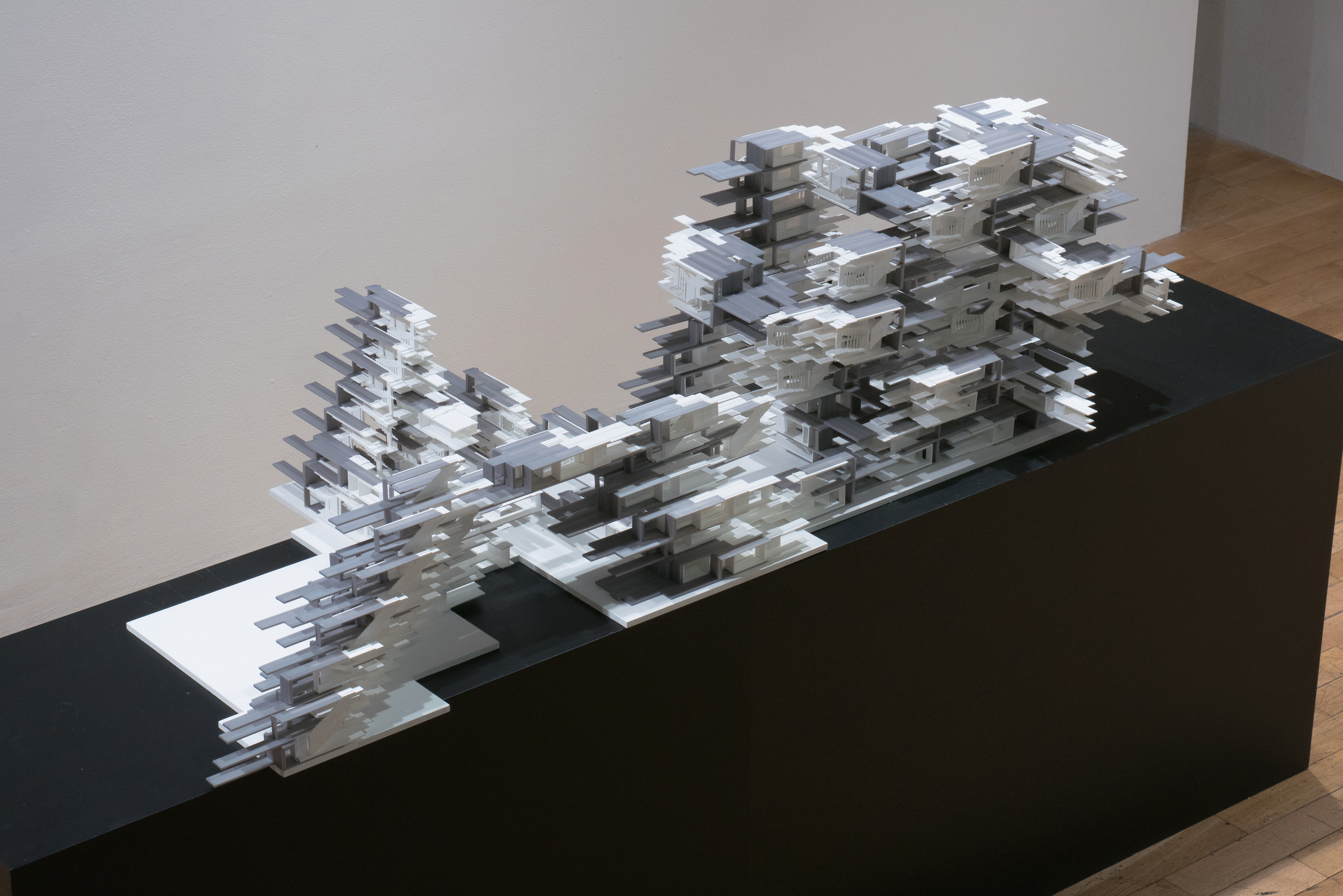Maison Partino
Part oriented Housing Project
by Rasa Navasaitye, Daniel Koehler
2019
For people to be able to dwell, values have to be captured in cells habitating human agency. Therefore, the moderns partitioned the city into volumes: voxels containing human speculations; estates which can be traded with ease. In our cities, digital economies intensify trade by shrinking that what cannot be traded: the public; and by shrinking that what is traded: estates turn into micro-vessels and coffin-like capsules. That what demands more creates less to dwell with. Brutally, automated markets are oriented towards the exchange of human speculation but not towards people.
To be continued: the sheer brute force of computation will shrink the parts of the city further. The Internet of Things makes the city conscious by linking sensors, interfaces, and protocols. When building parts begin to talk, they want to partake in the world as well. All too soon, things want to trade more than just the vessels of human desires. Houses want to be inhabited, walls want to compart, stairs to be walked, windows to frame, and people want to dwell.
The sheer pluralism of exchange might shrink people into birds. Peer-to-peer economies or better part-to-part habitats shape values through an ecology, through a forest of participatory capacities. When numbers dwell, the house is not anymore a Domus: that what is contained but that what partakes in: a Maison Partino. In such a forest, trees are not the raw blocks to build the huts of the moderns, but with computation, the modern huts turn into trees, leaves, and twigs, and with this people into birds.


